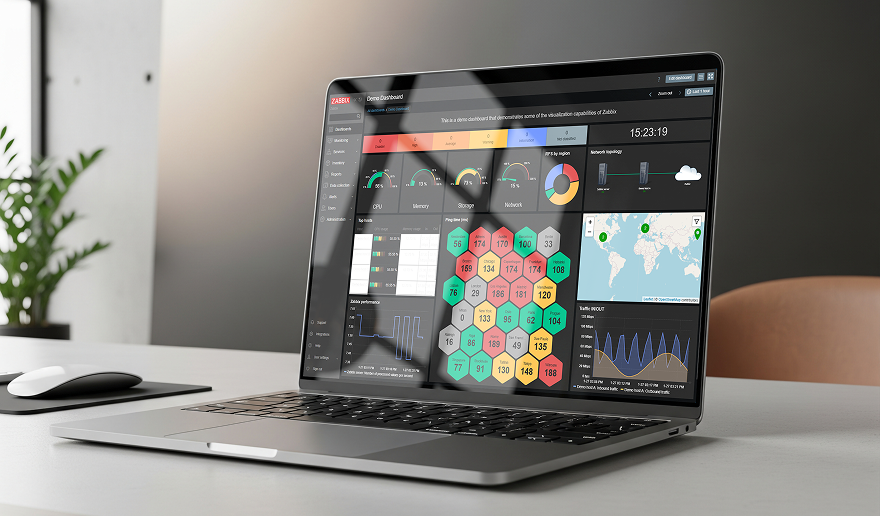Monitoring a Starlink Dish with Zabbix
Curious about keeping tabs on your Starlink internet performance? Whether you're off-grid or just love tracking your network performance, this post has you covered!

Aleksandrs Petrovs-Gavrilovs
Zabbix Certified Expert & Trainer
Latest articles

Modernizing Public Service Monitoring with Zabbix and Prodemge

February 25, 2026
Case Study
Prodemge is the public IT company responsible for supporting the digital systems and services that drive the Government of Minas Gerais in Brazil. Its operations cover essential areas such as healthcare, education, public safety, finance, and infrastructure, ensuring that public policies reach citizens quickly, securely, and efficiently.

Michael Kammer

Sending SNMP Traps from One Source to Multiple Zabbix Hosts

February 18, 2026
How To
Let’s say you are working in an environment with hundreds or thousands of devices. All of these devices are managed from a nice simple management server, ready for you to configure.

Nathan Liefting
IT consultant & Zabbix Trainer at Opensource ICT Solutions

Monitoring the Stars with Zabbix and VIRAC

February 10, 2026
Technical
The Ventspils International Radio Astronomy Center (VIRAC / VSRC) is a radio astronomy installation belonging to the Latvian Academy of Sciences.

Michael Kammer

Distributed Monitoring with Zabbix and Entelgy

February 3, 2026
Case Study
Entelgy is an international consulting and technology firm specializing in cybersecurity, digital transformation, and advanced IT operations.

Michael Kammer

Decoding Zabbix Proxy Traffic for Faster Troubleshooting

January 27, 2026
Handy Tips
Usually, it is enough to simply look at the Zabbix proxy administration page or proxy health metrics to perform basic proxy troubleshooting. However, there are situations when a deeper look is required.

Kaspars Mednis
Zabbix Certified Expert & Trainer

Zabbix in 2025: A Year of Growth, Community, and Innovation

January 20, 2026
Community
2025 has been a dynamic and crucial year for Zabbix — marked not just by global events and major releases, but also by meaningful community engagement, an important milestone in our history, new ways of sharing expertise, and headcount growth around the world – all while making sure our product evolves to provide even more […]

Michael Kammer

Stronger Together: Succeeding with the Zabbix Partner Program

January 13, 2026
Community
Ready to scale faster and grow smarter in 2026? If so, it might just be time to take a fresh look at the Zabbix Partner Program.

Michael Kammer

Building an “Academy of Uptime” with Kristine Lamberte

January 6, 2026
Community
If you’ve been working with Zabbix (or are planning to), you’re in luck – we’ve recently launched Zabbix Academy, a new learning platform designed to empower IT professionals and monitoring enthusiasts with self-paced, expert-led training. Zabbix Academy is the brainchild of Kristine Lamberte, Head of Training at Zabbix. Kristine was gracious enough to participate in […]

Michael Kammer








